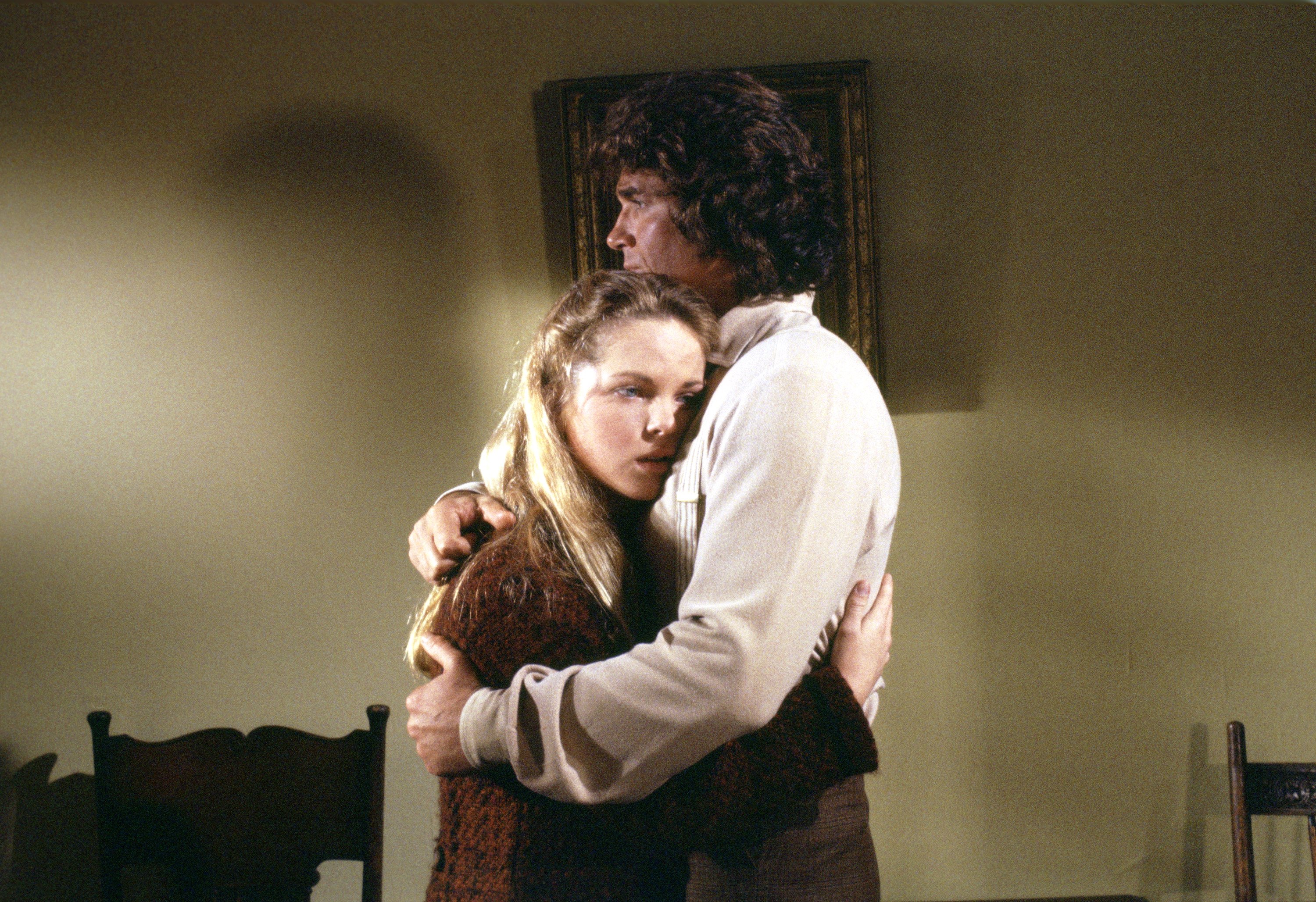‘Little House on the Prairie’: Why Melissa Sue Anderson Sided With Michael Landon on His ‘Ever-Growing Rift’ With Ed Friendly
Michael Landon joined forces with television producer Ed Friendly when he created Little House on the Prairie in 1974. Melissa Sue Anderson recalled a major falling out between the two, with Landon threatening to walk if NBC didn’t fire Friendly.

Michael Landon and Ed Friendly had different ideas for ‘Little House’
Little House on the Prairie was based on the books written by Laura Ingalls Wilder, which chronicled her experiences growing up in the late 1800s in the rural Midwest. Landon saw the potential for the stories to be parlayed into a family-friendly television series, though he wanted the freedom to take plenty of creative license. Friendly had a different idea in mind and wanted to stick to the text. Their opposing strategies caused major tension between the two producers.
“I’ve had problems with only a couple of people in my life,” Landon told author Tom Ito in Conversations With Michael Landon. “Ed Friendly was one.”
According to Outsider, Friendly wanted to adhere to the book series and portray the Ingalls family as more poverty-stricken. He went as far as suggesting the children to go without shoes and appear dirty. Though Landon and Friendly worked together on the pilot, the Bonanza alum gave the network an ultimatum. If they didn’t fire Friendly, he’d quit. Though Friendly got axed, his name remained on the credits and he earned a profitable sum from the show.
“Ed did his best to sabotage the show,” Landon remarked. “Fortunately he didn’t, because he made about $40 million from it.”
Melissa Sue Anderson agreed with Michael Landon’s vision for ‘Little House’
Anderson described how Landon was missing from an episode early in season 1 and attributed his absence to his tension with Friendly.
“Michael Landon wrote himself out of ‘The Award’ by having Pa and Mr. Edwards go out of town for a few weeks,” Anderson wrote in her memoir, The Way I See It. “Perhaps one of the reasons Mike did this was so that he would have more time to deal with the ever-growing rift between himself and our other executive producer, Ed Friendly. I think it was becoming increasingly difficult for them to get along — let alone work together.”
The Little House alum considered Landon as having the better plan for the show’s direction. Having the freedom to go outside the storylines of the books allowed for more shows to be produced.
“Their visions of Little House were just not the same,” Anderson explained. “Personally, I thought Mike’s perspective was the right one for our show. I believed in his track record: His instincts were pretty right-on. He wanted to be able to veer away from the books when creatively necessary while keeping the morals and principles well defined in the original stories.”
Ed Friendly maintained a credit on ‘Little House’
Anderson commented on how Landon and Friendly couldn’t come to an agreement and never resolved their conflict.
“By the end of the first season they would part ways for good,” she wrote. “Ed would always receive a credit on any shows produced, but he and Mike would no longer act as partners.”
Landon later referenced his tendency to hold onto the reigns when working on a project, and admitted he preferred to have the final say.
““My problem is I don’t delegate authority very well,” Landon told the Los Angeles Times in 1988. “I have a thing about control. The only times in my life when I was unhappy is when I didn’t have it. I like to have it.”


